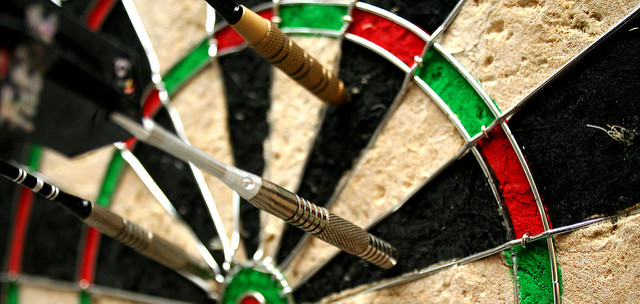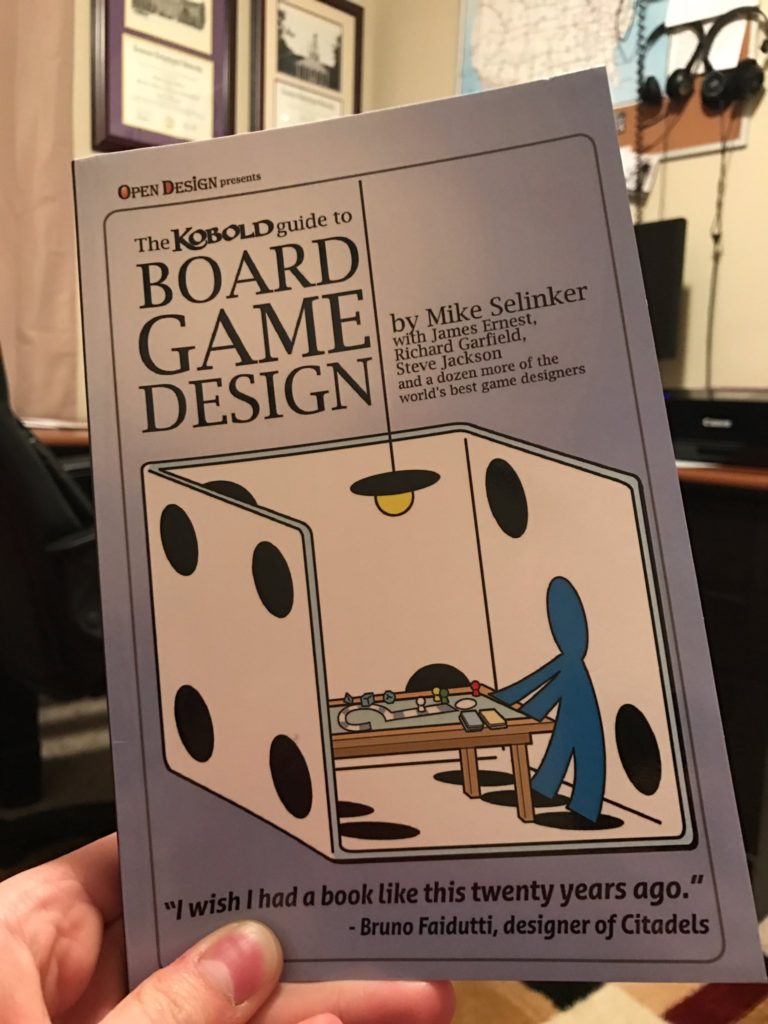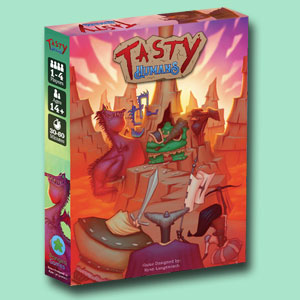For the first time since the beginning of the year, I took real time off. Completely away from my day job and my business, I found myself reflecting on the winding journey I’ve taken over the last couple of years to get here. I drove all the way from Chattanooga to the Outer Banks and back and the 20+ hours of driving really set my head straight again. I realized that in my push to create Highways & Byways, I’ve neglected six very powerful background skills that make game developers great. Game development is about more than just game development, folks.
Need help on your board game?
Looking for more resources to help you on your board game design journey?
I’m going to cover each of these six skills while providing examples that will update you on my progress on Highways & Byways this week. The Dev Diary is about more than simple updates – it’s about sharing what I’ve learned through my personal experiences with you.
Skill 1: Strong Goal Setting
If you ask any self-improvement guru or successful businessperson, they’ll all preach the importance of setting clear goals. After all, if you’re not 100% sure about what you want to accomplish, how will you know when you’ve done it? How will you know if you’ve done a good job?

Be extremely clear about your goals. Write them down. Speak about them often. Your broad goals should determine everything else you do. The bulk of your time should be spent working toward your most important goals.
Here’s the goals I’ve set for my company, Pangea Games. I split them into “Guiding Lights” and “Goals.” The Guiding Lights will not change. The Goals might, depending on how well they serve the Guiding Lights.
Guiding Lights:
- Make great games.
- Help game developers unlock their creativity.
Goals:
- Develop Highways & Byways. (Goal for Guiding Light 1)
- Create and curate great blog posts. (Goal for Guiding Light 2)
- Create and curate great social media content. (Goal for Guiding Light 2)
- Create an inner circle of devs. (Goal for Guiding Light 2)
Skill 2: Time Management
Somewhere along the line, when I was developing War Co., I stopped using my calendar as effectively as I did in college. I was making to-do lists for things I needed to accomplish in the day, but I wasn’t estimating their time. I also wasn’t sorting them by importance. That means I often spent my days accomplishing the wrong things and running out of time! Yikes!
With my aching head soothed by the break I gave myself going to the Outer Banks, I was able to look at my Google Calendar and cringe. I spent a few minutes resetting my calendar around the goals I’ve set. Now I’ve got it to where game development gets first priority and the most time, blog writing gets second priority and the second-most time, and everything else gets done when I have time.


If you struggle with time management in your game development projects, here’s what I suggest:
- Get a Google Calendar. Use it to track your time for a week or two, even if you don’t use it for scheduling. It’s an eye-opening experience if you’ve never done anything like it.
- Update your calendar to block off specific time periods for your most important tasks. Refer to your goals.
- Schedule your highest priority tasks to the available times of day you feel most energetic.
- If you run out of time to do low priority tasks, you’ve got three broad options: get someone else to do them, do them better, or just straight-up quit doing them.
Skill 3: Process Improvement
When you find yourself doing an ongoing process, take a few minutes every week or two to ask yourself whether you’re doing it right. With an ongoing process, you want to ask yourself two questions:
- Does this serve my goals? If the answer is no, chuck it. If the answer is yes, read on.
- Am I doing it effectively and efficiently? Is the process affecting your progress toward goals in a desirable way that’s worth the time you’re spending on it? If no, look for ways to improve it and if you can’t, scrap your process. If yes, read on.
A lot of you know me through social media, which I use a lot. Truth is, some of my techniques for running social media haven’t been super efficient. I spent about an hour this week looking at Excel sheets of my tweets and Instagram posts. I figured out what people like to see and I’m going to give them more of it.
Skill 4: Introspection
Game development is hard. It’s really, really hard. You have to make sure you want to do it if you plan on putting the hours, months, and years into game development it takes to master it. Ask yourself these two questions and don’t stop until you get an answer:
- Why do I want to make games?
- Do I really like making games? Do I like making games enough to push through the immense struggles of game development?
If you get a vague answer for question 1 or a negative answer for 2, you should quit. I’m serious. If you’re not into game development, you should quit. It’s a hard job and it’ll make you miserable if you don’t have the passion.
I’ve found that after years of putting up with crap (from others, but mostly from myself) during the development of War Co., I really do love what I do.
If game development is something you really like, there’s another question you should answer as well. What makes a great game? I’ve written a whole page about it. It’s for my eyes only, but there’s a thirst for it, I’m happy to share it with all of you as well!
Skill 5: Continual Improvement
Just about the biggest indicator of long-term success in game developers – and entrepreneurs at large – is the ability to learn from your mistakes. If you’ve been creating for more than few months, you’ve probably done some things wrong. Write down what you’ve done wrong and be brutally honest. Honest assessment of your weaknesses is critical to growth because it can lead you to ways to improve your work. Assess your failures, come up with ways to fix them, and then continually try those ways out. Keep what works, drop what doesn’t.

What does this look like for me? Well, I spent half an hour writing an autopsy for War Co. Yes. I declared my beloved baby project dead* and I wrote down everything I did wrong. I ended up with a list of 35 ways to improve. Some of them hurt my heart when I look at them. But hey, I have a list of 35 mistakes I won’t repeat in Highways & Byways.
* You can still buy it, though 😉
Skill 6: Ongoing Training
The first five skills are ones you can do alone. This sixth one isn’t. Seek out books, blogs, and podcasts about board games and board game design. Take classes if you can. Commit to ongoing training. You’ll never be perfect – the True North is far, far from us mere mortals. Drop the ego and learn. It’ll make you strong.

This week, I read the Kobold Guide to Board Game Design. It’s a good read, and $20 very well spent. I also set up a Feedly feed for board game development blogs. That way I can keep my development sauce spicy.
More Highways & Byways Game Progress
Over the last week, I spent three days vacationing and three days honing the skills I’ve listed above. I’ve spent the seventh day play testing the second draft of Highways & Byways with my brother. My current focus is working on the experimental “traffic” mechanic, which keeps the game from feeling like multiplayer solitaire. I haven’t got enough data yet to tell whether this is a good idea or bad idea yet. I’ll keep you posted.
Key Takeaways for Game Devs
- A lot of the skills you need to succeed as a game dev are general life skills, not technical skills.
- Set clear goals. The way you spend your time and every action you perform should link back to your goals.
- Manage your time well. There’s only so many hours in a day, and Google Calendar and help you squeeze every minute of them.
- Evaluate your processes from time to time. Make sure they’re efficient in serving your goals.
- Ask yourself the hard questions. Do you really want to be a game developer? Do you want it bad enough to push through the hard stuff? What does a good game look like to you?
- If you’re in it for the long haul, analyze your failures. Look for ways to improve.
- Keep your skills sharp by playing games and reading books and blogs.





2 thoughts on “6 Underrated Skills That Make You a Better Game Developer”